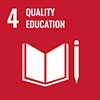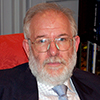The precariuous teaching of economics
Economics as it is currently taught in the majority of universities worldwide is the object of controversy. Various groups of students and lecturers are questioning the economics education being given by universities and colleges. The criticism being made has intensified in the wake of the crisis, but a number of different protests were also springing up earlier to this. The system is cyclical and crises are inevitable, not a thing of the past as per the belief spread by the dominant school of thought in economics. Because of its inexstricable attachment to equilibrium models, neoclassical economics is incapable of understanding the dynamic processes in the economy, making it insufficient not only because of its inability to predict crises, but also because of its inability to provide the tools needed to understand the workings of the economy.
Neoclassical economics should not be the only theory currently in force. This does not mean the IS–LM model should not be studied, but its limitations and restrictions must be highlighted; as an equilibrium model it does not correspond to what happens in reality, which is disequilibrium and vulnerability. It is thus necessary to take into account other ideas, such as Marxist, Keynesian, Schumpeterian, institutional and post-Keynesian theories.
ODS


 Carlos Berzosa Alonso-Martínez
Carlos Berzosa Alonso-MartínezProfessor of Applied Economics at the Complutense University of Madrid and Rector of the university from 2003 until 2011. Teaches mainly the disciplines of World Economic Structure and Development Economics.
President of the World Economy Society, which publishes the World Economy Journal (REM by its Spanish acronym), and director of the publication Revista de Economía Crítica. A member of the editorial board of the monthly journal Temas para el Debate, he directed the Economía collection for the publisher Síntesis.
Honorary doctorate from Piura National University (Peru) and from the University of Tarapacá (Chile). Former president of the Complutense University General Foundation and full member of the Spanish Royal Academy of Doctors.



